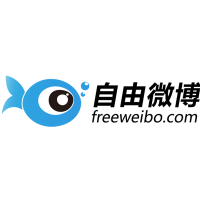Apple Deletes App that Helped Chinese Citizens Avoid Government Censorship

Despite its carefully constructed corporate iconography as a cool and progressive organization, Apple Inc. (2013 revenues: $170.91 billion) bowed to Chinese government censors again late last month. By preventing the Chinese people from accessing an uncensored version of China’s favorite social media network, Sina Weibo, Apple demonstrated how profits trump principles in its corporate decision making.
From October 4 to November 28, a “Free Weibo” app was available on the Chinese version of Apple’s online “App store,” allowing users to access the uncensored, but government-blocked “Free Weibo” website, which for about a year has been documenting the messages censored from Sina Weibo. Developed by an activist collective also called FreeWeibo and available free of charge on the account of Radio Netherlands Worldwide (RNW), the app proved itself immune to Chinese censorship efforts.
Believing they had beaten the censors, the activists counted on Apple’s public reputation. “The reason we originally chose Apple was because we figured that Apple is the kind of company that would support our goals,” explained FreeWeibo co-founder “Charlie Smith.”
Instead, on November 28 Apple complied with requests from the Chinese government to remove the Free Weibo app from its online App store. Calling Apple’s decision “very, very frustrating,” the pseudonymous Smith observed that this sort of corporate censorship “is the worst kind of censorship we can face, because there’s not much we can do to counteract it.”
Apple defended its decision on legal grounds, notifying RNW that it had removed the app “because it includes content that is illegal in China, which is not in compliance with the App Store Review Guidelines.” According to RNW’s editor-in-chief, William Valkenburg, Apple’s App Review board told him that “they had received a request from Chinese authorities to remove the app from the Chinese store because it goes against local laws, and that they consider this a matter between the Chinese authorities and RNW.”
By requiring no more than a government request rather than a legal determination, Apple essentially has made itself into a tool of state censors, and it will be impossible for apps dealing with human rights or liberties to be hosted in the Chinese App store—or in other online stores devoted to oppressive nations. In fact, this is not the first time Apple has helped China’s censors. Earlier this year Apple removed an app concerning banned books on Tibet, a censorship circumvention tool and other “controversial” apps.
Charlie Smith’s eyes have been opened: “The case helps shine a light on Apple’s opaque censorship guidelines. In this case we can clearly see that in the first instance Apple did not have the intention to remove it at all. They accepted us into the Chinese App store, as well as our subsequent updates. It was only when Chinese censors couldn’t take the app down that Apple was asked to remove it. We can trace the removal to a direct request from Chinese authorities.”
-Matt Bewig
To Learn More:
Apple Blocks App Developed by Chinese Activists and RNW (by Julie Blussé, Radio Netherlands Worldwide)
U.S. Firm Accused of Helping Dictatorships Spy on and Censor Internet (by Ken Broder, AllGov)
Apple the Jobs Creator…Outside the U.S. (by Matt Bewig and David Wallechinsky, AllGov)
- Top Stories
- Unusual News
- Where is the Money Going?
- Controversies
- U.S. and the World
- Appointments and Resignations
- Latest News
- Musk and Trump Fire Members of Congress
- Trump Calls for Violent Street Demonstrations Against Himself
- Trump Changes Name of Republican Party
- The 2024 Election By the Numbers
- Bashar al-Assad—The Fall of a Rabid AntiSemite






Comments